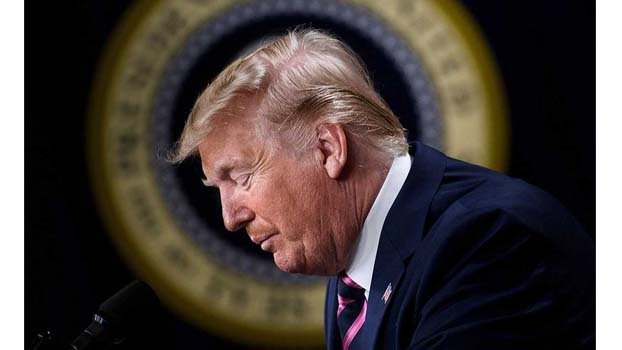2020 will be all about the American presidency

By this time next year, we will know the outcome of the presidential election race in the United States. Will Donald Trump, only the third president of that nation to be impeached, brush off the charges of using his office to have Ukraine interfere in America’s politics and obstruction of the impeachment process itself and secure a second term in the White House? Or will one from a crowded field of Democrats overcome the divisive polarisation of US politics to win the Oval Office.
The poll is set for November 3 and the long race for Democrats begins early in 2020 with the Iowa caucus. Possibly before that straw poll, President Trump will have been acquitted in his impeachment trial by US senators. As things stand now, it seems as if he has secured the full support of Republicans in the upper house to ensure that the two-thirds majority for impeachment and removal from office won’t be met.
The funding of the US federal government has been secured until September, removing one impediment from the agenda in Washington, a city and political apparatus at a virtual standstill because of the effects of the deep polarisation and divisions between Democrats and Republicans over the nature and tenacity of Trump’s presidency.
Trade deal
Further, with an apparent trade deal in place with China to end a series of tariff disputes, and with both Canada and Mexico signed on to a revised continental trade deal, there seems to be little in the way of halting the continued economic growth and job creation across the US economy.
But the US isn’t the only nation where election campaigns will be closely monitored. Just 11 days into 2020, the voters of Taiwan head to the polls pitting incumbent President Tsai Ing-wen of the Democratic Progressive Party against Han Kuo-Yu of the Kuomintang Party. Tsai’s party views Taiwan as being an independent nation, with Kuomingtang favouring closer ties to Beijing.
Given the tensions over the South China Sea, ongoing anti-Beijing demonstrations in Hong Kong, China will be watching the results very closely indeed — and unlikely to tolerate any overt dissent from an island it views as an integral part of its homeland.
Possibly before that straw poll,
President Trump will have been acquitted
in his impeachment trial by US senators.
As things stand now, it seems as if he has secured
the full support of Republicans in the upper house
to ensure that the two-thirds majority for
impeachment and removal from office won’t be met
Thaw in tensions
Last September Beijing warned that if Tsai is returned, Teipei risked losing all of its allies in the immediate region. During September 2020, however, the patience of China will be tested to the limit as Hong Kong is due to hold legislative elections.
Municipal elections in November saw a clean sweep by pro-democracy candidates there following five months of political violence and anti-Beijing protests. With the September ballot looming, will the leadership in China take action to end those protests and exert its control over the restive former British colony?
By April 15, the voters of South Korea will be asked to pass their verdicts in a general election on the reforms being put in place by President Moon Jae-in. Yes, there has been a historic thaw in tensions following the Winter Olympics there with the South Korea’s northern neo-Stalinist neighbours, but Pyongyang has recently backed away from its commitments given in summits in 2018 in Singapore and last February in Hanoi to President Trump, and is once more engaged in developing its nuclear ballistic programme.
Moon has been pressing for a series of legislative reforms and overhaul — with the April 15 general election considered to be a referendum on that process. Should his party fail to maintain its narrow majority, Moon will end up a lame-duck president with two years left in his term.
Remarkable turnaround
With a Nobel Peace Prize under his belt, Ethiopian Prime Minister Abiy Ahmed faces a general election in May in a nation that has experienced a remarkable turnaround over the past three years. Under his leadership, Africa’s second most-populous nation has reformed its economy and security apparatus, with the polls being a test of the nation’s tense internal ethnic relations. Some 1,200 have died in ethnic violence, tens of thousands displaced over the past year — and the vote will be an important measure of how far Ethiopia has come under Ahmed’s leadership.
Myanmar’s de facto leader, Aung San Suu Kyi, appeared in a Dutch courtroom in December to defend her nation against International Criminal Court accusations of genocide against the Rohingya people. Come November, Myanmarese will head to the polls where Suu Kyi’s National League for Democracy last time won a majority of seats in both houses in a legislative system that seems the military automatically controls a quarter of seats.
The nation’s constitution prevents her from running — but the vote will likely result in an endorsement of the status quo, offering little hope that the Muslim minority Rohingya will be able to safely return to their communities burnt out under the watch of Suu Kyi’s government and armed forces.
Mick O’Reilly Writes for Gulf News
Source: Gulf news



